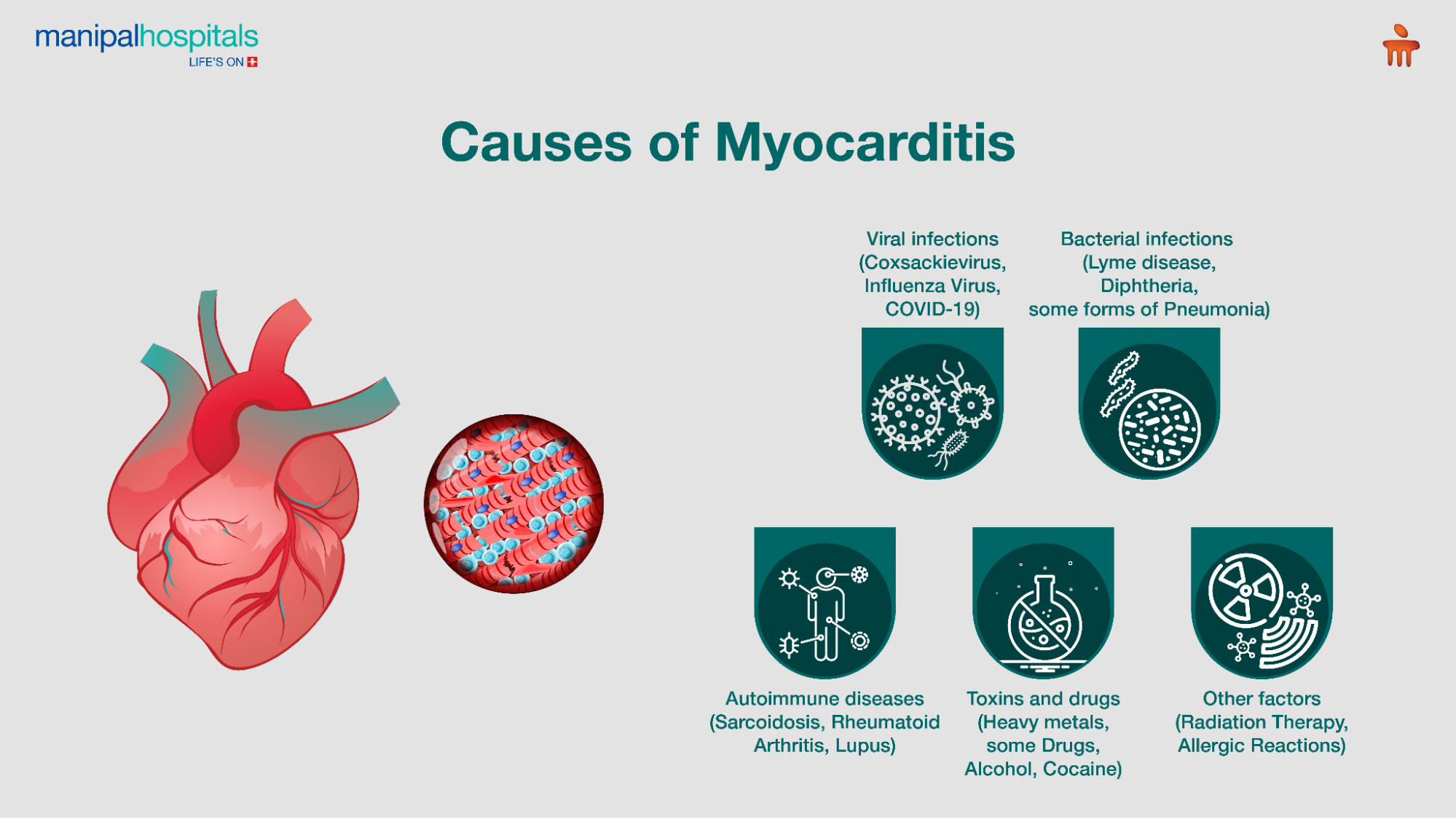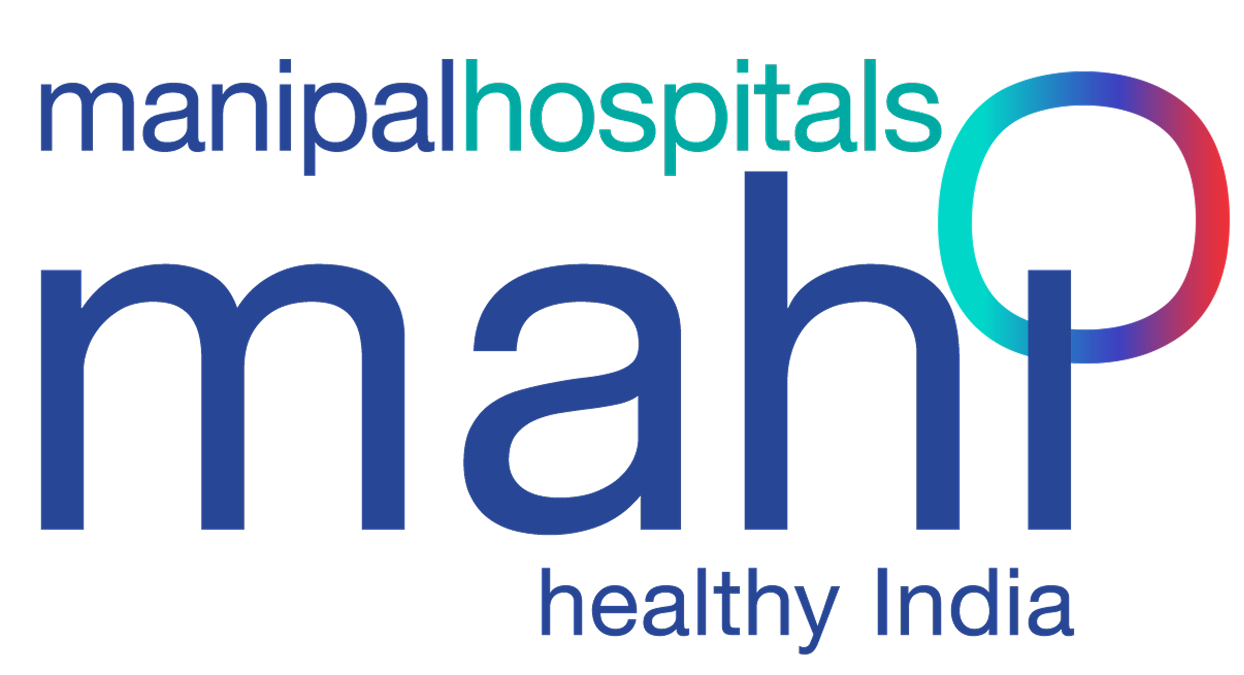
Could something as common as a viral infection lead to life-threatening heart issues? Myocarditis, a potentially severe condition in which the heart muscles become inflamed, often begins with symptoms that are easy to overlook. Viral infections, autoimmune disorders, or drug reactions can all contribute to this inflammation. Its prevalence has been reported to range between 10.2 and 105.6 instances per 100,000 people worldwide, with an estimated 1.8 million cases occurring each year.
Understanding its causes and signs could save your life. Anyone can get it, usually without warning, and major consequences can be avoided with early detection. This blog will explain myocarditis symptoms, causes, and available treatment options.
Synopsis
What is Myocarditis?
The heart is made up of three layers: the endocardium (inner layer), myocardium (middle muscle layer), and pericardium (outer layer). The thick layer of muscle that helps the heart pump blood throughout the body is called the myocardium. When this middle layer gets inflamed, myocarditis infection develops. Infections, autoimmune disorders, and exposure to specific drugs or substances can all cause this inflammation. Chest pain, tiredness, breathing difficulties, and other symptoms that may interfere with day-to-day functioning can result from myocardial damage.
There are two types of myocarditis:
-
Acute Myocarditis: Develops suddenly and may cause severe symptoms like chest pain and shortness of breath.
-
Chronic Myocarditis: Develops slowly over time, leading to long-term heart issues like fatigue and irregular heartbeats.
Both forms can disrupt daily life and need timely medical attention.
Myocarditis Causes

Myocarditis causes can be many, such as:
- Viral Infections
Viral infections are the most common cause of myocarditis. When viruses enter the body, they can attack heart cells, leading to inflammation. Some common viruses linked to myocarditis include:
-
Coxsackievirus
-
Influenza Virus
-
COVID-19
- Bacterial Infections
Although less often than viral infections, bacteria can also cause myocarditis. Conditions that can cause heart muscle inflammation include Lyme disease, diphtheria, and some forms of pneumonia.
- Autoimmune Diseases
Myocarditis can occasionally result from the immune system unintentionally attacking cardiac tissue. This inflammatory reaction can be worsened by autoimmune diseases such as sarcoidosis, rheumatoid arthritis, and lupus.
- Toxins and Drugs
Myocarditis can result from exposure to specific toxins, such as heavy metals and some drugs which are used for the treatment of cancer. Alcohol and cocaine, which are used recreationally, can potentially harm the cardiac muscle.
- Other Factors
Myocarditis can also result from the following factors:
-
Radiation Therapy: Inflammation of the heart can occasionally result from cancer treatment.
-
Allergic Reactions: Certain allergens or drugs can cause myocarditis in certain people.
Myocarditis Symptoms
Some individuals with early myocarditis are asymptomatic. Some people just have minor symptoms. At times, myocarditis symptoms can resemble other heart infection symptoms or those of a heart attack. If you experience sudden chest pain or difficulty breathing, it's essential to get emergency medical help right away.
Typical signs and symptoms include:
-
Chest pain, which may be sharp or dull and can worsen with physical activity
-
A common complaint is unexplained weakness or fatigue
-
Breathing difficulties, particularly when exercising or even when at rest
-
Palpitations: An uneven or fluttering heartbeat
-
Swelling because of fluid retention, especially in the legs, ankles, or feet
-
Fever, body aches, or other flu-like symptoms
Myocarditis Diagnosis
|
Diagnostic Method |
Description |
Purpose |
|
Clinical History & Examination |
Includes symptoms like chest pain, fatigue, palpitations, shortness of breath, recent infections |
Initial suspicion and evaluation |
|
Electrocardiogram (ECG) |
May show ST-T changes, arrhythmias, conduction abnormalities |
Detects electrical abnormalities in the heart |
|
Blood Tests |
Includes troponins, CRP, ESR, BNP/NT-proBNP, viral serologies |
Detects myocardial injury and inflammation |
|
Chest X-ray |
May reveal cardiomegaly or pulmonary congestion |
Assesses heart size and pulmonary status |
|
Echocardiography |
Shows wall motion abnormalities, reduced ejection fraction, pericardial effusion |
Evaluates cardiac structure and function |
|
Cardiac MRI |
Can detect myocardial edema, hyperemia, and fibrosis (Lake Louise Criteria) |
Non-invasive gold standard for myocarditis imaging |
|
Myocardial Biopsy (MB) |
Histological confirmation of inflammation (Dallas Criteria), sometimes viral PCR |
Definitive diagnosis; used in severe or unclear cases |
|
PET Scan (FDG-PET) |
Detects active myocardial inflammation through increased glucose uptake |
Helps identify ongoing inflammation, especially in chronic myocarditis |
|
Coronary Angiography (if needed) |
Rules out ischemic causes in patients with elevated troponin or chest pain |
Differentiates myocarditis from myocardial infarction |
Myocarditis Treatment
The underlying cause and the intensity of myocarditis symptoms determine the course of treatment. Options may include:
Medications
-
Myocarditis treatment typically involves stopping exposure to any toxic substances and addressing the underlying cause, such as treating the responsible infectious organism.
-
Anti-inflammatory medications, including steroids (use of this is controversial and is recommended for limited conditions), NSAIDs (nonsteroidal anti-inflammatory drugs), may also be prescribed to help relieve pain and reduce inflammation.
-
Medications currently used to manage heart failure symptoms include ARNI (Angiotensin Receptor-Neprilysin Inhibitors), beta blockers, and anti-arrhythmic drugs.
-
Antiviral or Antibiotic Therapy: Suitable antiviral or antibiotic drugs may be recommended if myocarditis is brought on by a bacterial or viral infection.
Additional treatments may be required in situations of severe myocarditis that do not improve with conventional therapy, including:
-
Intravenous Immunoglobulin (IVIG): This treatment can assist in regulating the immune response.
-
Implantable Devices: Pacemakers and implantable cardioverter-defibrillators (ICDs) may be necessary in patients with significant heart malfunction with arrhythmia, which can result in sudden death.
-
Heart Transplant: A Heart Transplant may be considered in severe circumstances where the heart is seriously damaged and does not improve with treatment.
Sequelae of Myocarditis
Approximately 50% of patients recover with significant improvement in heart function, including better contraction, reduced valve leakage, and better control of arrhythmias. Recovery may be either partial or complete and typically takes around 3 to 6 months. However, some patients do not show any improvement in heart function and may progress to dilated cardiomyopathy. These individuals may become candidates for ventricular assist devices (VADs) or heart transplantation.
Conclusion
Understanding myocarditis, its causes, symptoms, and treatment options is essential for maintaining heart health. Seek immediate medical assistance if you or someone you know is exhibiting myocarditis symptoms. Proper management and early diagnosis can help avoid complications and greatly enhance results. Regular checkups with your doctor and a heart-healthy lifestyle can also influence long-term cardiac health.
For more information on myocarditis or to schedule an appointment, visit Manipal Hospitals, Kolkata, today.
FAQ's
Yes, myocarditis can be prevented in some cases by following good hygiene and making lifestyle adjustments. Begin by eating a diet low in processed foods, sweets, and saturated fats and high in fruits, vegetables, whole grains, and lean proteins. Regular exercise can help you stay active, strengthen your heart, and enhance your general health. Limit alcohol intake and abstain from smoking, as these habits can raise the risk of heart problems and infections. It's also beneficial to manage stress by practising relaxation methods like yoga and meditation. Additionally, make sure your immunisations are updated to guard against viral infections and make an appointment for routine check-ups with your doctor to keep an eye on the condition of your heart.
Myocarditis is usually diagnosed using a combination of techniques. A thorough medical history and physical examination may be the first step taken by doctors. Commonly used procedures include echocardiograms to visualise heart function, electrocardiograms (ECGs) to evaluate heart rhythm, magnetic resonance imaging (MRI) to detect inflammation, and blood tests to check for indicators of infection and inflammation. To confirm the diagnosis, a cardiac biopsy could be done in certain situations. These actions aid in ensuring a precise diagnosis and directing the right course of treatment.
Yes, myocarditis can get serious and may lead to complications like heart failure or arrhythmias if not treated promptly. Early diagnosis and treatment are crucial to prevent these outcomes.
Myocarditis is generally not hereditary as it is mainly caused by toxins, autoimmune diseases, or infections. However, there can be rare genetic conditions that can make individuals susceptible to heart inflammation.
Although one can live for years after myocarditis without any problem with the right treatment. But it can recur in some cases. Also, it can lead to dilated cardiomyopathy, chronic heart damage, heart failure, or arrhythmias in some people.






















 7 Min Read
7 Min Read








.png)








